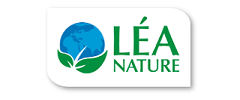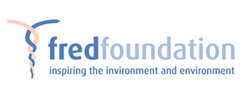Combining ecological sanitation and the production of Terra Preta soil in Kyrgyzstan
Ecosan toilets or Urine Diverting Dry Toilets (UDDT) are an adequate and sustainable sanitation solution in areas where there is no piped water and sewerage.
20.03.2015 |

Ecosan toilets or Urine Diverting Dry Toilets (UDDT) are an adequate and sustainable sanitation solution in areas where there is no piped water and sewerage. In rural Kyrgyzstan, ecosan toilets were introduced in the 1990ies by CAAW, WECF, KAWS and other Kyrgyz NGOs and user acceptance has been high.
Many households use the stored urine as a nitrogen rich liquid fertilizer in subsistence farming but in some areas the acceptance for urine use is limited. In Osh, Southern Kyrgyzstan, more than 1500 people use the ecosan toilets which have been implemented in households as well as in schools. Especially women and girls are benefitting from the advanced hygienic standard and increased privacy of the ecosan toilets which are usually constructed adjacent to the house.
The ecosan toilet products – urine and dried faecal matter – are used as organic fertilizer in agriculture and people report about increased yield and benefit Women report that they were able increase their harvest and started income generation with selling the surplus products.
In order to further improve the use of toilet products, Terra Preta production of human excreta has been tested by the student Jasmin Barco in cooperation with CAAW. Terra preta is a high quality soil, result of excellent waste management with high humus content due to biochar or charcoal addition which had been found in the Amazon. Jasmin has been looking into the feasibility of producing a Terra Preta like soil in order to safely manage the toilet products.
To present and discuss her first results, CAAW and WECF organised a workshop in Osh on 17-18 March 2015. More than 20 participants from academia, ecosan practitioners, from NGOs and interested people were actively taking part in the two days theoretical and practical workshop.
Professor Amaitova, Osh University, underlined that soil degradation in Kyrgyzstan is a serious problem and there is a need for conserving the soil and improving the soil quality. Tynar Musabaev, executive director of CAAW, explained that the UDDT is a well accepted sanitation technology in rural Kyrgyzstan but needs to be further supported.
Ecosan owners presented the good results of using urine and compost. There was some sceptism as these products might be unsafe to use, and can spread pathogens. Claudia Wendland, WECF's Water and Sanitation specialist, explained the related WHO guidelines (2006) which give clear recommendations on how to apply toilet products safely.There might stay a risk of misuse but that risk exists similarly for other fertilisers. She gave examples from other countries where national guidelines on the use of urine are available or in planning: Sweden, Moldova, Philippines. Jasmin Barco presented ideas how ecosan can be institutionalised and can be a source of income generation. The participants agreed that UDDT and the use of toilet products should be promoted in rural areas through awareness raising campaigns and capacity building and that it is needed that toilet products are officially regulated by relevant national policy makers.

The cleanest and most efficient biowood stove: Awamu biomass energy
The second day was devoted to practical activities, the production of biochar of wood in a small gasifier stove was successfully tested and Jasmin demonstrated how to set up the terra preta treatment.
This work has been done in the frame of the EWA project in Kyrgyzstan, funded by the Dutch Ministry of Foreign Affairs.
More information about ecosan and terra preta sanitation:
Claudia Wendland, Claudia.Wendland@wecf.eu
How can women and men in rural Kyrgyzstan improve their sanitation situation and increase their harvest?
How can... http://t.co/rlCf9r8obF
— WECF_INTERNATIONAL (@WECF_INT) March 20, 2015Related News
Teach a woman how to harvest, and her family and community will benefit for a lifetime
WECF's EWA programme “Empower Women, Benefit for All” in rural Kyrgyzstan leads to women empowerment, income generation for women and improved living standards
07.08.2015 | Carmen Chan
Meet Kalys: the woman who helped providing water access for her village
WECF's EWA programme “Empower Women, Benefit for All” in rural Kyrgyzstan leads to women empowerment, income generation for women and improved living standards
07.08.2015 | Carmen Chan
Female deputies of Kyrgyz National Parliament commit to women empowerment and improved access to water and sanitation
A high-level stakeholder meeting took place on 28 May 2015, at the National Parliament (Jogorku Kenesh) of Kyrgyzstan in the framework of the Forum of Women of the Jogorku Kenesh
27.07.2015
Kyrgyz deputies are concerned about water, sanitation and hygiene conditions in villages
Deputies of Kyrgyz Supreme Council visit villages to assess WASH issues in schools and kindergartens
22.06.2015
Example of Water Solidarity between France and Kyrgyzstan
Safe Drinking Water for An-Oston Village driven by a local women´s initiative
21.05.2015





































